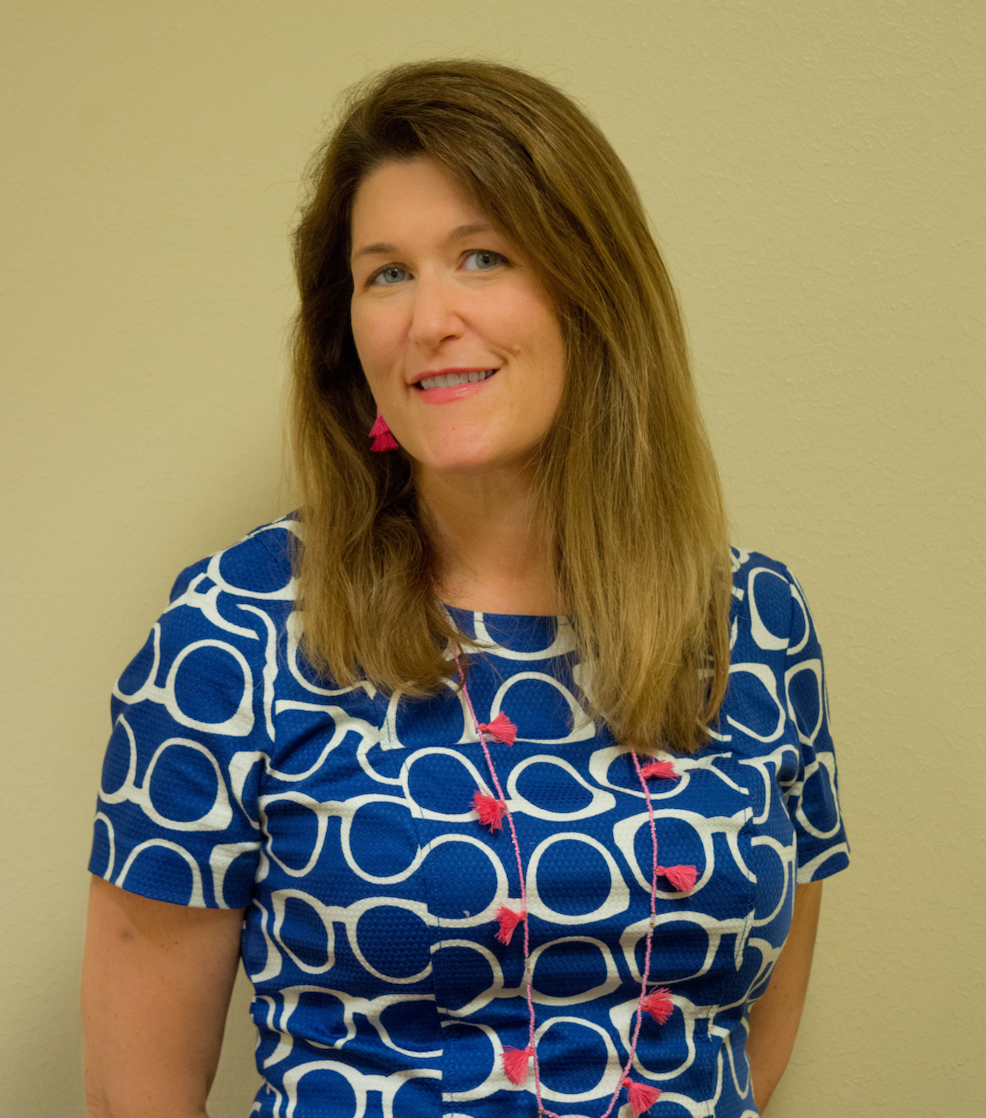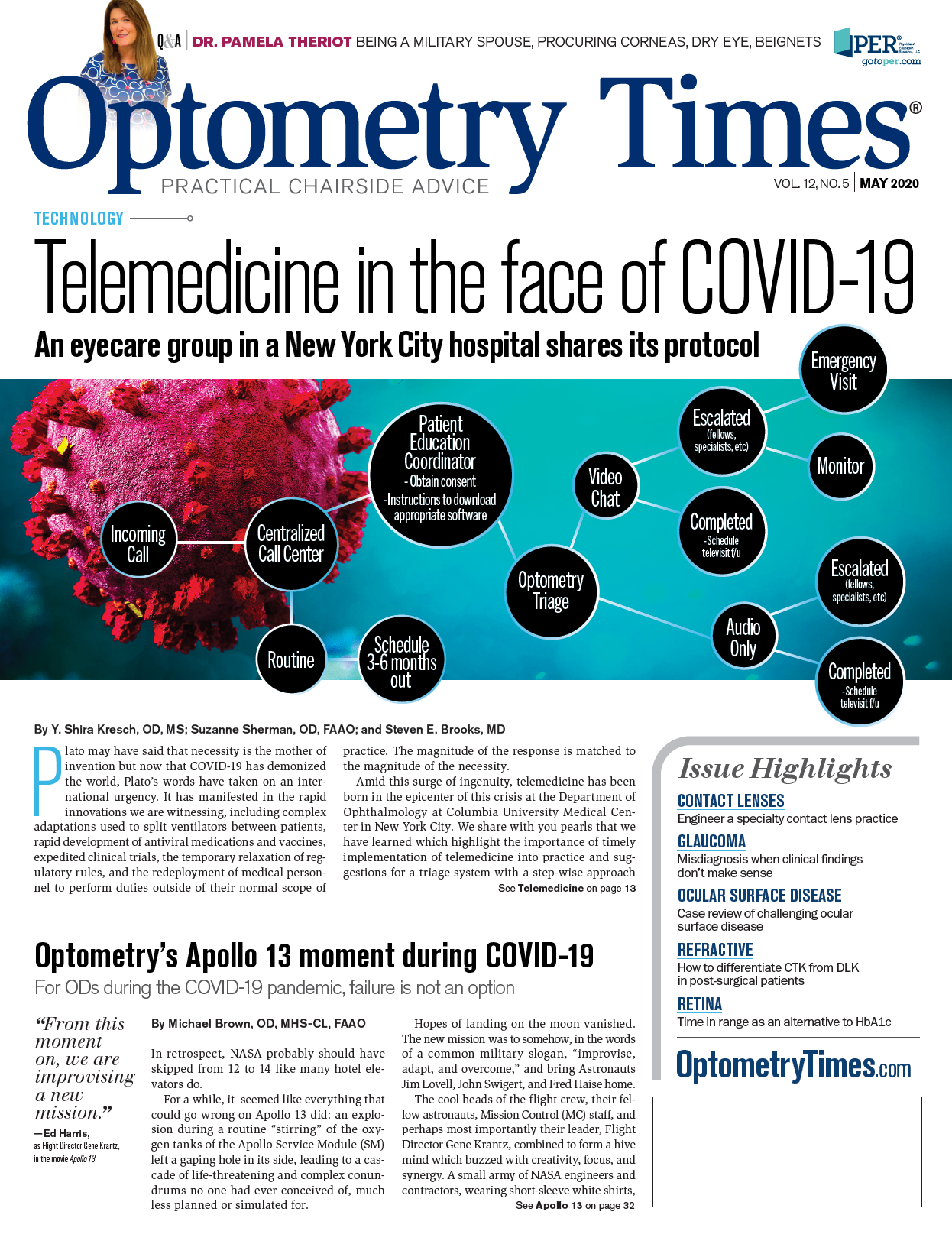Being a military spouse, procuring corneas, dry eye, and beignets

Pamela Theriot, OD, FAAO
Clinical Director of the Dry Eye Center at Lusk Eye Specialists in Shreveport, LA
Where did you grow up?
I was born in Houston, and then we moved to California when I was 12. I claim California as home, grew up in the Los Angeles area. My dad was into computers, so back in the ‘80s it was still growing. We moved from job to job. My dad is from Texas, and my mom is from California.
Why contact lenses and dry eye?
I love everything dry eye, and I try to learn whatever I can about it. My patients complain mostly about redness, sensitivity, irritation, and I like to keep my patients happy. I know they want to wear their contact lenses and wear eye makeup, so I have done a lot of research into the best way for them to continue doing those things.
How did you get interested in optometry?
I got my first pair of glasses when I was 12. I know it is cliché, but I could see the leaves on the trees. And in my 12-year-old head, I thought to myself, “It must be amazing to do this for people every single day.” The feeling that I felt being able to experience those leaves on the tree I wanted to give to people. And so, ever since I’ve been 12 I wanted to be an eye doctor.
Related: Scleral contact lenses, academia and mentoring students, sushi, skydiving
What were the challenges as a military spouse with moving and job changes?
My husband is active duty military, and it has kept us moving from town to town. My career has ebbed and changed, probably more than the average OD. I used to think of it as a detriment to my career, and now I think of it as a blessing because I have had so many different experiences. I have had a broader range of experiences. It has made me realize what I really like to do in optometry. Now that it’s been 18 years since I graduated, I feel like I have a very strong sense of my passion.
What is something your colleagues don't know about you?
When I was in college I worked in an eye bank. I was the eye bank technician who procured the corneas, which meant that I frequented the morgues. I used to go out at all hours of the day and night to procure these corneas that were to be transplanted. Now I work for a corneal surgeon who does the transplants. It’s really cool to see the other side of it. I did that for years, even when I was in optometry school I worked for an eye bank. It’s a good way to pay the bills. [Laughs]
What's your guilty pleasure food?
Definitely a beignet.. I eat them only once a year. I live in Louisiana now, but it’s northern Louisiana, it’s not the same.
Related: Nutritional science, residency benefits, marketing yourself, and living on Estrogen Island
Why a write book about dry eye, and are you working on a second?
Every time we go to a new city, I get a job and within three years we are moving again. Right around the two-year mark I start having patients who want to schedule with me and discuss their families with me. I finally get to feel like, “OK, I’m their eye doctor.” Then we move, and I start all over again. I wrote the book to reach more patients with the idea that dry eye is something that can be controlled. I wanted to build a community online where it didn’t matter where I was living. I have thought about a second book. A colleague suggested that we should write a book together, so that might happen in 2020. That book will be geared specifically for women, addressing cosmetic concerns that women have around dry eye.
Why offer dry eye treatment plans through your website?
When I’m getting ready to move, some of my patients say, “You can’t leave. Who am I going to see?” I refer them to a colleague who I know will take good care of them. Once you build a relationship with patients, they are loyal to you. Now they can reach out to me through my website. I have patients email me every day to tell me things about their eyes or their families because we have built relationships over the years.
Related: Ocular aesthetics injections, Irish whisky, optometric legislation, becoming a master gardener
What's been the reaction to your website from patients and other ODs?
So far, so good. I haven’t had any complaints yet that I am giving away the farm or that I am not treating patients properly. I think the more patients know about dry eye, the more awareness is out there. Then the better all of us will do in our offices. I think awareness will drive more patients into our clinics.
What do you love most about what you do?
Vision is our most precious gift. I love showing patients how they can treat it as a precious gift. When I have patients come in and they admit, “I’m being honest, I haven’t removed these contact lenses in six months,” it makes me want to cry on the inside. [Laughs]. I encourage healthy habits. I don’t show them pictures of corneal ulcers, but I tell them they are putting themselves at significant risk. My favorite part is being able to educate patients about the dangers they are putting themselves under with the habits they have cultivated through years of neglect.
Related: Academia, contact lenses, beer, climbing a water tower
Where do you see yourself in 10 years?
I see myself still practicing, of course. I want to have a stand-alone dry eye clinic where people could come in and have treatments, ones to make their eyes more beautiful. I would like to build out my online courses to include a course specifically on dry eye. I would see myself doing more online work and in-clinic. I don’t want to stop seeing patients; you lose your edge.
Do you have any regrets?
I don’t know. Let’s say not jumping into the dry eye world quicker.
What's something about optometry you'd like to change?
I currently live in Louisiana, and we have one of the best optometric laws in the country where we can do lasers and write prescriptions for medications that you swallow. I did my residency in New York state, at that point optometrists couldn’t use punctual plugs. Ten years later, in 2011, I moved back to New York state and we stayed until 2013. You could then use punctual plugs, but I still couldn’t write a prescription for doxycycline. I would like to see optometry have reciprocity between states because I have six different state licenses from moving from state to state. I have to keep those up if I think I am going to move back. I also have to take an exam every time I move. It would be nice if there were more common laws about what ODs could do nationwide and not so specific state to state. It’s frustrating, especially if I move back to a state. Here in Louisiana I can do laser surgery for glaucoma. In California, I have to be certified as a glaucoma specialist. It would be nice to have a bigger standard.
What's the craziest thing you’ve ever done?
I broke my arm once while running. I was in Syracuse, NY, and it was the most beautiful day of the year. It was gorgeous outside, and I slipped on a wet leaf. I Supermanned, I caught air, and I came, splack, flat down. I broke my arm. [Laughs] I wasn’t even running in the ice and snow or anything cool. It was a gorgeous day outside and I just tripped on a leaf. [Laughs] I’m a little accident prone, which is why I don’t bicycle, roller skate, or ski.
More by Vernon Trollinger: In and out of industry and private practice, Dodger dogs, purple footprints

Newsletter
Want more insights like this? Subscribe to Optometry Times and get clinical pearls and practice tips delivered straight to your inbox.